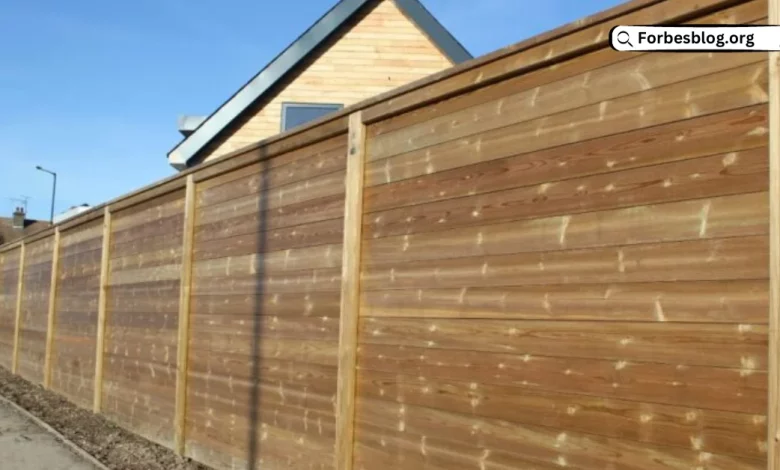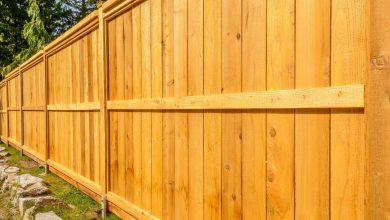Can An Acoustic Fence Reduce Noise?

Have you ever been at the receiving end of noise menace? Or are you worried about being a noise menace to someone else? Either way, we understand how important it is to ensure that social responsibility is taken when it comes to noise pollution. However, while you have probably researched ways to block out the noise, you may have stumbled upon what is called “Acoustic Fence”.
If you are wondering if acoustic fencing is your answer to the bothersome noise around you, then you will find your answers right here. However, before we step into the if’s and but’s, let us get a clear picture of what acoustic fencing is.
Table of Contents
What Is Acoustic Fencing In The First Place?
Acoustic fencing falls under a type of soundproof fencing which is mostly used by commercial industries to keep a check and reduce noise pollution as much as possible. When Quality commercial acoustic fencing is ensured, it can result in effectively cutting-out the noise pollution that is usually caused by noisy machinery, commercial activities, or noise from commercial vehicles that are used to transport material say from one warehouse to another.
Acoustic fencing was specifically designed to act as insulators and are modified to ensure that soundwaves coming from any external environment are prevented. It is said that acoustic fencing can help reduce noise by up to 28 decibels. However, this is the best-case scenario depending on the quality and process of how your commercial acoustic fencing has been installed in the first place. Hiring a team of quality workers who provide quality material is the first and foremost step towards ensuring that you get good work done without any possibility of shoddiness.
Acoustic fencing is currently categorised into two categories. The first is fences that are reflective, and the other is fences that are absorptive. When it comes to personal usage, a reflective fence comes in handy, however, for commercial purposes, absorptive fencing is encouraged and suggested.
How Exactly Does Acoustic Fencing Work?
We know that soundwaves travel in the form of a straight line. Due to this, sound refracts, reflects, or travels depending upon the property of the material it is faced with. Therefore, in this case, an obstacle between two sound wave paths, ensures that its energy level gets obstructed thereby diminishing and reducing sound. Without an obstacle, the sound will travel to or from your home with full energy and capacity. Acoustic fencing acts as the obstacle needed to help reduce the power of noise to its minimum.
What Are The Types Of Acoustic Fencing Available?
As of today, there are 4 available and popular types of acoustic fencing. All 4 materials have different sound reducing capabilities.
1. Wooden
Wood fences can prove to be great when it comes to soundproofing. By ensuring that a strong wooden fence is placed without any kind of spacing, the fence will be able to mirror noise from the street well. The usual and preferred choice for wooden fences is usually Redwood or Cedar. However, the one factor of worry with wooden fences is the kind of wear and tear it faces due to your local weather. Ensuring that you insulate your fence well against the weather will help increase the durability and lifespan of your fence.
2. Metal
Metal fences are known to provide excellent quality soundproofing. However, ensure that you purchase metal that is water-safe and erosion-safe metal. You will lose out on quality soundproofing if the quality of the metal is not adequate. Not to mention the amount of additional time and money you will have to spend if your fence gets contaminated or damaged due to water or soil.
3. Concrete
Being one of the best options for soundproofing, a concrete fence is a sure-shot way of creating a strong sound obstruction fence that will cut out the noise. It is a known fact that blocks and stones are great when it comes to blocking noise. Most people use this material due to how effective it is.
4. Brushwood
This fence is created with the help of small branches, twigs, and undergrowth. However, ensuring that the thickness of a brushwood fence is more than 60 cm is a must. Anything lesser will defeat the purpose. By correctly making a brushwood fence, you can get considerable relief from the noise.
How Effective Is Acoustic Fencing For Blocking Noise?
While soundproofing will not happen one hundred per cent, acoustic fencing, when done correctly can help reduce noise significantly. However, the decision on what type of fence to go with must be done correctly. As mentioned earlier, every fence has a different sound-reducing capacity and capabilities. Therefore keeping in mind, the following factors and then choosing a type of fence is important before the process of installation:
- How dense or thick is the chosen fence?
- What are my local weather conditions like?
- What is the height of the chosen fence?
- What material would go best with my surroundings?
- How much sound am I looking at cutting/blocking out?
Based on these factors, when you make the right choice,Acoustic Fence as mentioned earlier, you can reduce noise up to 28 decibels. To ensure that you are making the right choice it is advisable to resort to professional advice from an acoustic engineer or a surveyor. A professional will be able to measure the noise level in and around your property and advise you with the best possible solution to create a win-win situation.
However, Acoustic Fence even if you keep in mind certain factors and know clearly what you want and how you want it, you can choose and get the correct acoustic fence installed. Additionally, it is important to ensure that you follow regulations stated for fencing. Not complying with the necessary rules could cause unnecessary complications. To ensure that you are up to date on the rules and regulations of acoustic fencing, it is recommended to speak with your local planning authority to get the necessary clarity.




